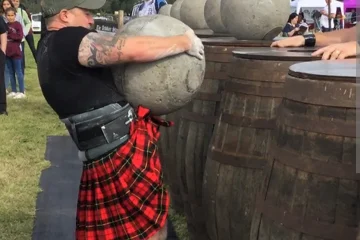Racist chants are not anything new on the football terraces of Central and Eastern Europe, and having watched, the quite frankly, sickening and defensive response of the national coach of the Montenegro Team to accusations of racist chants, it is obvious that racism is institutionalised in these countries.
The Croatian president thanks Argentina for taking in notorious pro-Nazi war criminals after World War II. In Bulgaria, a top politician calls the country’s Roma minority “ferocious humanoids.” And Hungary’s prime minister declares the “color” of Europeans should not mix with that of Africans or Arabs.
Ever since WWII, such views were taboo in Europe, confined to the far-right fringes. Today they are openly expressed by mainstream political leaders in parts of Central and Eastern Europe, part of a populist surge in the face of globalization and mass migration.
“There is something broader going on in the region which has produced a patriotic, nativist, conservative discourse through which far-right ideas managed to become mainstream,” said Tom Junes, a historian with the Human and Social Studies Foundation in Sofia, Bulgaria.
In many places, the shift to the right has included the rehabilitation of Nazi collaborators, often fighters or groups celebrated as anti-communists or defenders of national liberation. In Hungary and Poland, governments are also eroding the independence of courts and the media, prompting human rights groups to warn that democracy is threatened in parts of a region that threw off Moscow-backed dictatorships in 1989.
Some analysts say Russia is covertly helping extremist groups in order to destabilize Western liberal democracies. While that claim is difficult to prove with concrete evidence, it’s clear that the growth of radical groups has pushed moderate conservative European parties to the right to hold onto votes.
So, against this background is any action taken by UEFA to last nights chants just a drop in the ocean. With institutionalised racism at a national level in many of these countries what can be done?
In younger, weaker, more fragile democracies, right-wing populism is more dangerous because it can weaken and even demolish the democratic institutions.
All global and regional institutions like the EU, UEFA, FIFA, IMF and the OECD need to first of all take the rise of nationalism and racism seriously. They need to come down hard on any flagrant racial abuse by punishing its perpetrators and their nations through their pockets. Fines, bans and economic sanctions need to be instituted, but at the same time education needs to be encouraged. Education in the form of the carrot, that allows people to improve their lives by embracing change and multi-culturalism. These need to be orchestrated at the governmental level and be a precursor for belonging and benefiting from global institutions.
Thought Leadership- Cogitare
Cogitare-The Latin for “To Think, ” is the collective name for DVC Consultants thoughts, insights and perspectives on a broad and eclectic number of subjects. From Brexit to Global Poverty, Islamic Banking to Subsistence Agriculture, Disruptive Technologies to The World Bank. It reflects the wide range of sectors and issues we consult on. We hope you enjoy reading them.




0 Comments